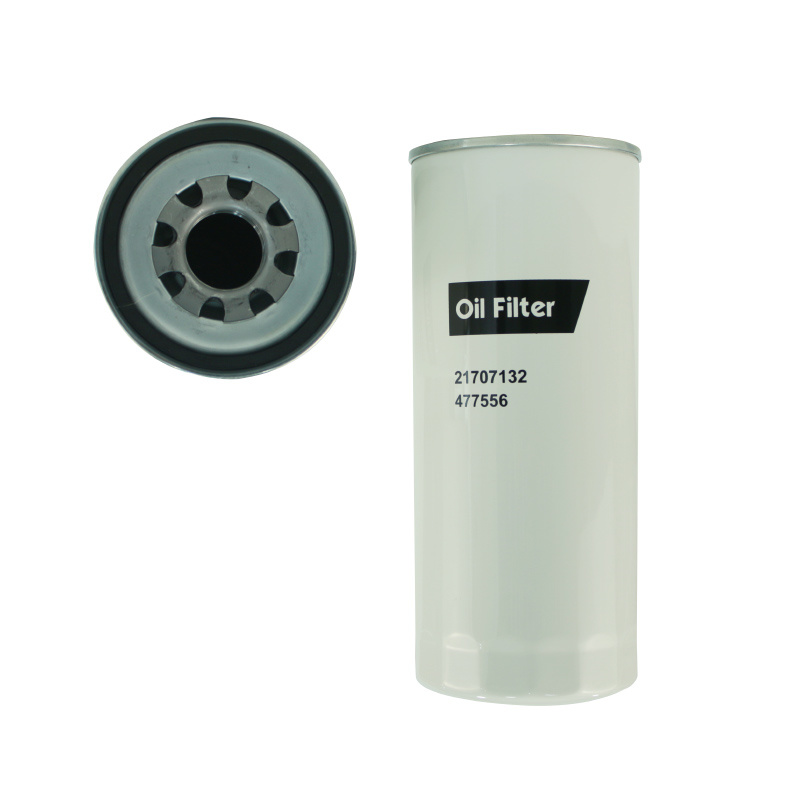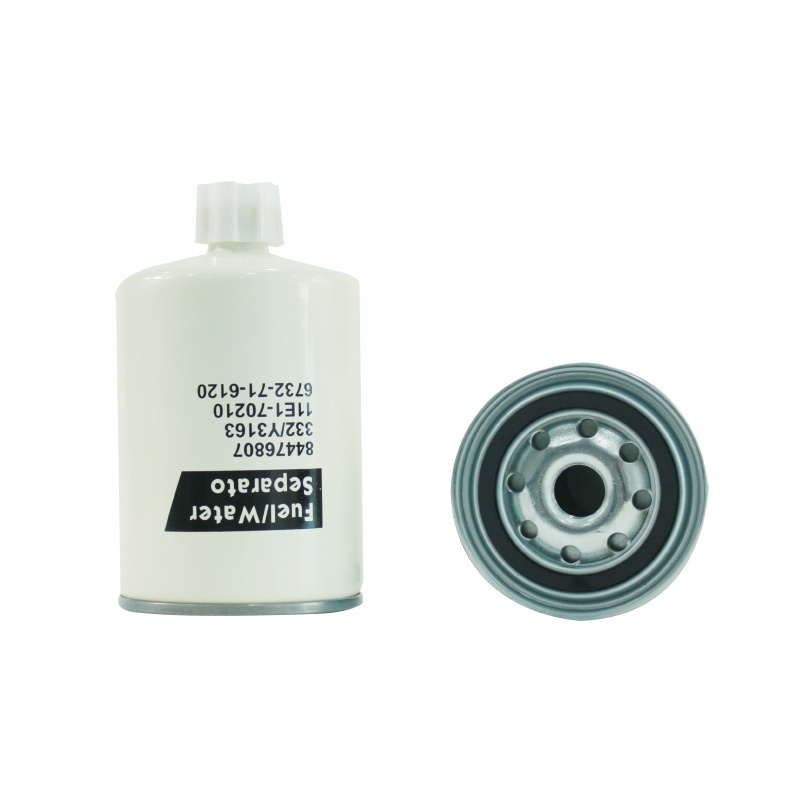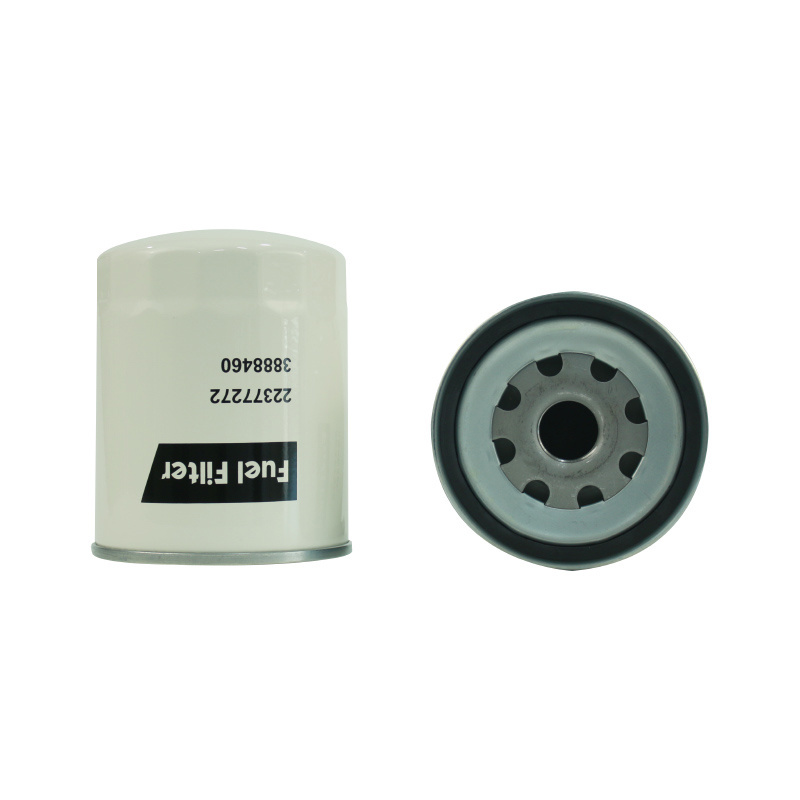Welcome to Hebei Takai Vehicle Parts Technology Co., Ltd.
The Connection Between Oil Filters and Tractor Efficiency: Unlocking Peak Performance
Release Time:
Jun 13,2025
The Connection Between Oil Filters and Tractor Efficiency Understanding Oil Filters in Tractors Oil filters play a pivotal role in the performance and longevity of tractors. These components are designed to remove contaminants from engine oil, ensuring that the oil remains clean and effective. When tractors operate, they accumulate dirt, metal particles, and other debris that can significantly imp
The Connection Between Oil Filters and Tractor Efficiency
Understanding Oil Filters in Tractors
Oil filters play a pivotal role in the performance and longevity of tractors. These components are designed to remove contaminants from engine oil, ensuring that the oil remains clean and effective. When tractors operate, they accumulate dirt, metal particles, and other debris that can significantly impact engine performance. By utilizing a high-quality oil filter, operators can maintain optimal engine health, ensuring smooth operation and preventing potential failures.
How Oil Filters Affect Tractor Performance
The influence of oil filters on tractor performance cannot be overstated. Clean oil is essential for lubricating engine components, reducing friction, and maintaining a consistent temperature. Here’s how oil filters contribute to overall tractor efficiency:
1. Enhancing Lubrication
Oil filters are designed to trap impurities that can cause wear on engine components. When oil is clean, it circulates more effectively, reducing friction and providing better lubrication. This enhanced lubrication leads to improved fuel efficiency and overall tractor performance.
2. Preventing Engine Wear
Contaminants in engine oil can lead to significant wear and tear on internal engine components. A quality oil filter prevents these contaminants from circulating, protecting critical components such as pistons, bearings, and camshafts. This protection results in a longer lifespan for the engine and improved reliability.
3. Maintaining Optimal Operating Temperature
Effective filtration of engine oil also helps maintain an optimal operating temperature. Clean oil can absorb and dissipate heat more effectively, preventing overheating and maintaining performance. When the engine operates within its optimal temperature range, it functions more efficiently, leading to better power output and fuel economy.
Choosing the Right Oil Filter for Your Tractor
Selecting the correct oil filter is essential for maximizing tractor efficiency. Not all oil filters are created equal, and choosing the right one can significantly impact performance. Here are key considerations for selecting the best oil filter:
1. Compatibility with Your Tractor Model
Ensure that the oil filter is compatible with your specific tractor model. Manufacturers often recommend specific filters for their engines, taking into account the unique design and requirements of each model.
2. Quality and Filtration Efficiency
Opt for high-quality oil filters that offer superior filtration efficiency. Look for filters with multiple layers or advanced filtration technology to capture smaller particles, ensuring that the oil remains cleaner for longer.
3. Manufacturer Recommendations
Always refer to the tractor manufacturer’s recommendations for oil filter specifications. This guidance ensures compatibility and performance, ultimately optimizing tractor efficiency.
Maintenance Tips for Oil Filters
Proper maintenance of oil filters is essential for sustaining tractor efficiency. Regularly checking and replacing oil filters can prevent engine issues and enhance performance. Here are some key maintenance practices:
1. Regular Inspection
Regularly inspect oil filters for signs of wear or damage. Look for leaks, cracks, or any indications that the filter may be failing. Early detection of issues can prevent more significant problems down the line.
2. Timely Replacement
Replace oil filters according to the manufacturer’s recommendations or based on operating conditions. Frequent use in harsh environments may necessitate more regular replacement to maintain optimal performance.
3. Oil Change Synchronization
Synchronize oil filter changes with oil changes. Changing the oil filter during an oil change ensures that contaminants do not re-enter the system, promoting cleaner oil circulation and protecting the engine.
The Economic Benefits of Efficient Oil Filters
Investing in high-quality oil filters can lead to significant economic benefits for tractor operators. Here’s how:
1. Fuel Savings
Efficient oil filters can enhance fuel efficiency, leading to reduced operating costs. Clean oil ensures that the engine runs smoothly, optimizing fuel consumption and reducing the frequency of refueling.
2. Reduced Maintenance Costs
Preventative maintenance, including regular oil filter changes, can reduce overall maintenance costs. By preventing engine wear and potential failures, operators can avoid costly repairs and downtime.
3. Increased Resale Value
Tractors that have been properly maintained, including regular oil filter changes, often have a higher resale value. Prospective buyers are more likely to invest in equipment that demonstrates a history of proper care and maintenance.
Common Misconceptions About Oil Filters
Understanding the truths and myths surrounding oil filters can help tractor owners make informed decisions. Here are some common misconceptions:
1. All Oil Filters Are the Same
Not all oil filters offer the same level of protection. Quality varies greatly, and investing in a high-performance filter can significantly impact engine longevity and efficiency.
2. Changing Oil Means Changing the Filter
Some operators believe that changing the oil alone is sufficient. However, failing to change the oil filter can lead to contamination of fresh oil, negating the benefits of an oil change.
3. Oil Filters Don’t Wear Out
Oil filters have a finite lifespan and can become clogged with contaminants. Regularly replacing the filter is crucial to maintaining optimal engine performance.
FAQs About Oil Filters and Tractor Efficiency
1. How often should I change my tractor's oil filter?
The oil filter should typically be changed with every oil change, or at least every 50 to 100 hours of operation, depending on the manufacturer's recommendations.
2. Can a dirty oil filter affect fuel efficiency?
Yes, a dirty oil filter can restrict oil flow, leading to increased friction and reduced fuel efficiency. Keeping the filter clean is essential for optimal performance.
3. What are the signs that my oil filter needs changing?
Signs include reduced engine performance, unusual noises, and visible leaks around the filter. Monitoring oil pressure can also indicate a clogged filter.
4. Are aftermarket oil filters as reliable as OEM filters?
While some aftermarket oil filters can be reliable, it’s crucial to choose reputable brands that meet or exceed OEM specifications for optimal performance.
5. Can I clean and reuse an oil filter?
It is not advisable to clean and reuse oil filters, as this can compromise filtration efficiency. Always replace with a new filter to ensure engine protection.
Conclusion
The connection between oil filters and tractor efficiency is undeniable. A high-quality oil filter not only enhances lubrication but also prevents engine wear and maintains optimal operating temperatures. By understanding how to select and maintain oil filters, tractor operators can significantly improve efficiency, reduce operational costs, and prolong the lifespan of their equipment. Making informed choices about oil filters not only benefits the tractor but also contributes to overall farm productivity and success. Investing time and resources into proper oil filter maintenance is a smart choice for anyone looking to optimize their tractor's performance.
You Can Also Learn More About Industry Trends












